These books are highly recommended resources for clinicians who work in clinical psychology, health psychology, or behavioral medicine settings.
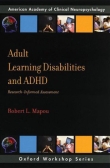 Adult Learning Disabilities and ADHD: Research-Informed Assessment (Oxford Workshop Series : American Academy of Clinical Neuropsychology)
Adult Learning Disabilities and ADHD: Research-Informed Assessment (Oxford Workshop Series : American Academy of Clinical Neuropsychology)
A great book on adult learning disabilities and attention deficit hyperactivity disorder (ADHD). The author provides a condensed, evidence based overview (about 250 pages) of adult learning disabilities/ADHD research and assessment, as well as working with clients with these disorders.
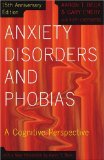 Anxiety Disorders and Phobias: A Cognitive Perspective
Anxiety Disorders and Phobias: A Cognitive Perspective
Anxiety is at the core of many different psychological/behavioral disorders and represents one of the more common ailments treated by psychologists. Beck’s book is a classic, yet still very relevant today. An advanced look at anxiety with immense clarity and readability. This book will help you grasp anxiety and its related disorders, such as panic disorder and social anxiety disorder, at a theoretical and practical level.
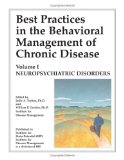 Best Practices in the Behavioral Management of Chronic Disease: Neuropsychiatric Disorders (Vol. I)
Best Practices in the Behavioral Management of Chronic Disease: Neuropsychiatric Disorders (Vol. I)
Part of the excellent “Best Practices” series. An evidenced based review of behavioral medicine-based treatments for the management of chronic disease. Essential for clinical health and medical psychologists.
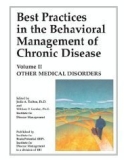 Best Practices in the Behavioral Management of Chronic Disease: Other Medical Disorders (Volume II)
Best Practices in the Behavioral Management of Chronic Disease: Other Medical Disorders (Volume II)
Part of the excellent “Best Practices” series. An evidenced based review of behavioral medicine-based treatments for medical conditions not covered in volumes 1 and 3, such as COPD, hypertension, coronary artery disease, and diabetes. Essential for clinical health and medical psychologists.
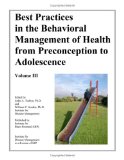 Best Practices in the Behavioral Management of Health from Preconception to Adolescence (Volume III)
Best Practices in the Behavioral Management of Health from Preconception to Adolescence (Volume III)
Part of the excellent “Best Practices” series. An evidenced based review of behavioral medicine-based treatments for children’s health. Essential for pediatric clinical health and medical psychologists.
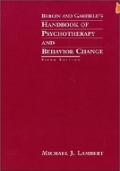 Bergin and Garfield’s Handbook of Psychotherapy and Behavior Change
Bergin and Garfield’s Handbook of Psychotherapy and Behavior Change
18 chapters that are the essential guide to evaluating variables that contribute to treatment success, to better understanding evidenced-based therapies and the process of behavior change, to working with culturally diverse patients/clients, and more. Also includes one chapter dedicated to Health Psychology and another that covers combined psychotherapy and psychopharmacology treatment approaches.
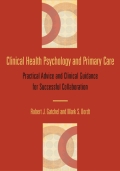 Clinical Health Psychology and Primary Care: Practical Advice and Clinical Guidance for Successful Collaboration
Clinical Health Psychology and Primary Care: Practical Advice and Clinical Guidance for Successful Collaboration
A reference guide for the many common ailments that clinical primary care / health psychologists face on a daily basis, such as hypertension, obesity, diabetes, and insomnia. Includes brief assessment and treatment guidelines. Clearly written with concise information.
 Clinical Neuroanatomy, 26th Edition
Clinical Neuroanatomy, 26th Edition
The essential and classic neuroanatomy textbook now in its 26th edition. A highly technical, but concise and readable (at least for a medical textbook) look at the human central nervous system. Full color illustrations and photos along with brain images from various imaging techniques throughout the book. Essential and reasonably priced.
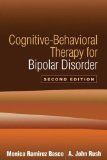 Cognitive-Behavioral Therapy for Bipolar Disorder, Second Edition
Cognitive-Behavioral Therapy for Bipolar Disorder, Second Edition
Bipolar Disorder (BPD) sometimes falls under the purview of health psychologists because medication management and emotional support support helps improve patient treatment adherence and outcome. This book provides a great overview of BPD and medication and psychological treatment approaches. A 20 session CBT treatment manual is provided in the appendix.
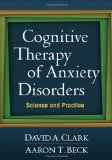
Cognitive Therapy of Anxiety Disorders: Science and Practice
The quintessential guide to treating anxiety disorders with cognitive behavioral therapy (CBT) as devised by one of the most distinguished psychologists in the history of psychology: Aaron Beck. This is an absolutely essential book and when combined with the Exposure Therapy for Anxiety book (below), these are a one-two punch to treat the most challenging anxiety disorders in an evidence-based approach.
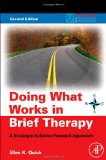 Doing What Works in Brief Therapy, Second Edition: A Strategic Solution Focused Approach
Doing What Works in Brief Therapy, Second Edition: A Strategic Solution Focused Approach
Intended for the practicing psychologist or counselor, this book provides a concise overview of Strategic Solution Focused Therapy (SSFT). This unique brand of brief therapy combines the very best strategies and techniques from Strategic therapy and Solution Focused therapy. An excellent brief therapy model for use in clinical and medical settings.
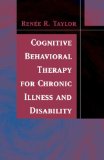 Cognitive Behavioral Therapy for Chronic Illness and Disability
Cognitive Behavioral Therapy for Chronic Illness and Disability
Details the theory and clinical application of CBT for chronic disorders and illness, such as fatigue, pain, sleep disturbance, and gastrointestinal dysfunction. An excellent book for medical psychologists and physicians.
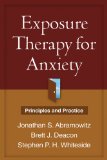
Exposure Therapy for Anxiety: Principles and Practice
A theory/therapy/treatment manual that explains the nature of anxiety and provides step-by-step instructions on how to go about conducting therapy sessions for anxiety disorders, including PTSD, social anxiety, and generalized anxiety disorder. This book provides guidance on how to treat all anxiety disorders from one conceptual framework, and a book that all psychologists who work with anxiety should add to their library.
Details the link between the gut and immune system and Autism, Attention Deficit Disorder (ADD / ADHD), and several other syndromes. The author also provides a detailed detox treatment plan designed to help the brain to develop and function properly. Alan Fisher, PhD, a BMED Report contributor, provided a book review of this title here.
Absolutely essential book to better understand psychophysiology and the major systems, such as the autonomic nervous system, gastrointestinal system, and cardiac system. This is geared toward psychologists and not a medical textbook. Also includes excellent information on various forms of biofeedback. Close to a 1000 pages so considered a reference manual.
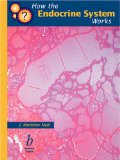 How the Endocrine System Works
How the Endocrine System Works
Another great edition to the “How It Works Series.” This volume covers the human endocrine system. Like others in this series, complex topics are presented in easily digestible lecture based formats with excellent summaries and a little humor. This book was indispensable during my doctoral program.
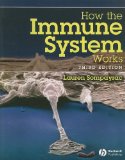 How the Immune System Works (Blackwell’s How It Works)
How the Immune System Works (Blackwell’s How It Works)
Covers the human immune system in just over 100 pages. Consider this an awesome “study guide companion” to the Human Psychoneuroimmunology book listed below. This book literally salvaged my grade in a doctoral level psychoneuroimmunology course. Essential.
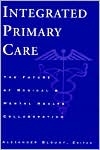 Integrated Primary Care: The Future of Medical & Mental Health Collaboration
Integrated Primary Care: The Future of Medical & Mental Health Collaboration
This book lays the foundation for primary care psychology and the integration of physical and mental healthcare services. Outlines ways for medical psychologist to develop services in many different settings and populations, such as in hospitals, rural areas, and community based health centers and with women and the elderly.
One of the best books available that covers the complex interplay between psychological, neurological, and immunological factors. A complicated yet fascinating topic.
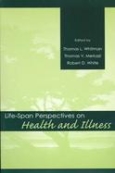 Life-span Perspectives on Health and Illness
Life-span Perspectives on Health and Illness
A biopsychosocial look at health, wellness, and disease across the life-span. Includes chapters on children, family, adulthood, aging, and death and dying.
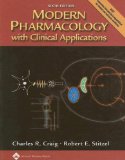 Modern Pharmacology With Clinical Applications, Sixth Edition
Modern Pharmacology With Clinical Applications, Sixth Edition
Pharmacology is complicated and there is no way around this. However, this book provides a nice balance of information with good explanations of each drug class without ridiculously technical details. Best used as a reference guide for health/medical psychologists.
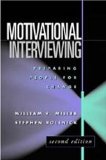 Motivational Interviewing, Second Edition: Preparing People for Change
Motivational Interviewing, Second Edition: Preparing People for Change
Primary care and medical psychologists often meet briefly with medical patients to help motivate them to enter or continue treatment. This is the industry-standard book on brief, client-centered motivational interviewing. A quick read for those who need to implement quickly this therapeutic technique.
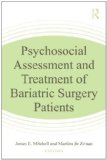 Psychosocial Assessment and Treatment of Bariatric Surgery Patients
Psychosocial Assessment and Treatment of Bariatric Surgery Patients
An essential book for Health Psychologists who are involved with the psychological assessment of patients who want to undergo bariatric surgery for weight loss. Cover a broad range of topics, such as clinical interview, specific assessment instruments, the nature of eating disorders, pharmacotherapy, exercise, and more.
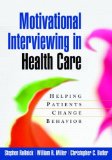 Motivational Interviewing in Health Care: Helping Patients Change Behavior (Applications of Motivational Interviewin)
Motivational Interviewing in Health Care: Helping Patients Change Behavior (Applications of Motivational Interviewin)
A condensed guide to motivational interviewing in healthcare settings complete with a theoretic overview, clinical applications, case examples, and additional reading and training resources. A great complementary book to the Motivational Interviewing, Second Edition listed above.
[
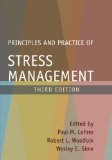 Principles and Practice of Stress Management, Third Edition
Principles and Practice of Stress Management, Third Edition
This is a book I wish I knew about at the start of my graduate level training. An excellent therapist manual that details common therapeutic techniques used in Health Psychology and Behavioral Medicine for the management of stress and anxiety. Includes a diverse range of topics, such as autogenic training, progressive muscle relaxation, hypnosis, neurofeedback, biofeedback, and breathing retraining.
 Spinal Cord Injury: A Guide for Living (A Johns Hopkins Press Health Book)
Spinal Cord Injury: A Guide for Living (A Johns Hopkins Press Health Book)
Although intended for lay persons, healthcare providers, especially psychologists, who plan to work with patients with spinal cord injury should read this book to better understand the challenges unique to this population.
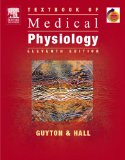 Textbook of Medical Physiology: With STUDENT CONSULT Online Access
Textbook of Medical Physiology: With STUDENT CONSULT Online Access
Every health/medical psychologist needs to have a good human physiology book in their library. This was the assigned textbook in my doctoral level medical physiology course. A technical and thorough read so best used as a reference book.
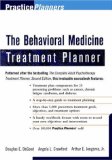 The Behavioral Medicine Treatment Planner
The Behavioral Medicine Treatment Planner
Graduate students and professionals will find this to be valuable resource for treatment plan development including time tested goals and intervention statements. This edition covers 26 ailments specific to behavioral medicine that include asthma, diabetes, COPD, cancer, HIV/AIDS, obesity, headache and organ transplants. The appendix also provides patient bibliotherapy suggestions.
I usually avoid books published for the general public; however, this is an excellent overview of the human anatomy and physiology that covers all the major systems in just the right amount of detail. The pictures are displayed in gorgeous colors and detail that border on being works of art. A great book for the times when you do not need excessive detail common to true medical textbooks.
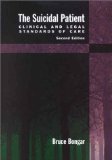 The Suicidal Patient: Clinical and Legal Standards of Care
The Suicidal Patient: Clinical and Legal Standards of Care
Suicide is unfortunately a part of all psychologists’ work, regardless of specialization. This book provides a comprehensive overview of suicide and its legal implications.
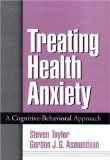 Treating Health Anxiety: A Cognitive-Behavioral Approach
Treating Health Anxiety: A Cognitive-Behavioral Approach
A step-by-step CBT-based treatment guide for the health anxieties, including hypochondriasis, disease phobias, and delusional disorder, somatic type. As far as we know, this is the first and only CBT book specifically for treatment of health anxiety.
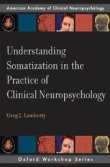 Understanding Somatization in the Practice of Clinical Neuropsychology (Aacn Workshop Series)
Understanding Somatization in the Practice of Clinical Neuropsychology (Aacn Workshop Series)
Another great book in the Oxford Workshop Series. Written for neuropsychologists, but most practitioners will appreciate its no-nonsense presentation (in about 125 pages) of how to conceptualize somatization disorder. A brief overview of common treatments and assessments are also provided.
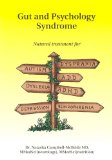

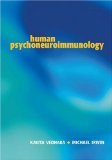

Recent Comments